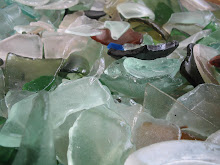
Set in the early nineteenth century on a plantation in the American Deep South, this short, vivid novel is a painful read – a compelling study of how those who deny the humanity of others are themselves diminished, if not destroyed.
The narrator of
Property, Manon Gaudet, is the discontented wife of a brutal plantation owner, trapped in a role that she loathes. Against the wider background of deep, fermenting unrest – with periodic escape and revolt of slaves and the violent suppression of such uprisings – Manon’s domestic life is certainly no refuge. She pines for her native New Orleans. She abhors her husband – as well she might, for many reasons, not least the fact that he enjoys the nocturnal company of her slave girl, Sarah. How should Manon deal with the fact and constant presence of Sarah’s red-haired son,Walter, upon whom her husband, the boy’s father, alternately dotes and abuses? What should the boy’s status be in this tense, dysfunctional household? The ambivalence of the relationships, familial and sexual, causes seething resentments, which, like everything else, are suppressed, and simmer away beneath the surface, unspoken of, just something else to be borne by the unhappy heroine.
What is striking about the novel is that there is no twenty-first-century viewpoint – the author skilfully takes herself and us right back to the mindset of the age and the effect is frequently startling. The lean, pared-down writing makes no particular attempt at historical pastiche in terms of its language, which makes the lack of modern sensibility in the narration all the more shocking. We’re reading a 21st-century novel, yet the effect is akin to reading a journal from the time.
The Gaudets’ life revolves entirely around managing their property, exercising their ownership, buying and selling things: land, crops, slaves, houses. Yet it is, of course, the relationship between slave and slave-owner which is central to the book. We see the humanity of the slaves. Manon, the narrator, does not -
cannot. Not for a single moment.

Even in a couple of fleeting scenes which could almost pass for moments of tenderness – we are jolted into realising that these are not, for Manon, interactions between human beings. Her slaves – the women who dress her, bathe her, cook and clean for her– are not people, in her eyes. They’re not merely individuals lower down the social scale from Manon, like servants, or the freed slaves who run shops and small businesses in town. Slaves are simply property. They mean no more to her than furniture. They appear on the household inventory along with the cutlery and the bedding.
Manon could hardly be a less sympathetic heroine. So far removed from her reader's perspective and from any possibility of deeper self-awareness, she is little short of loathsome. Yet, with a little effort on the our part, we
can understand her reaction to her predicament, see how very little room she has for manoeuvre, entrenched as she is in the attitudes of her milieu.
I was completely bowled over by this book, and plan to re-read it quite soon. After I’d finished it, I went to Amazon to get the picture and link and read there plenty of reviews saying, effectively, ‘I didn’t like the central character, she’s horrible, and therefore the book is no good – one star’. Ugh! How I hate that kind of ‘review’! How completely they miss the point of books like Property. Far, far better to read the summing-up by Ahdaf Soueif, Chair of the Judges for the Orange Prize, 2003:
‘It looks at the relationships of power and ownership among people living in a system which is manifestly evil. Yet they are ordinary, often good people. They are being damaged by their system, you can see it damaging them, and yet they never question it. The story is told through an unsympathetic narrator, yet the book is utterly clear about what its moral hear it. This is a terribly difficult thing for a writer to do. The gaps in the book, what is left unsaid, are very important . . .’Exactly so.
The book’s Amazon critics also condemn its abrupt ending – as if this represents some failure on the part of the writer to know how to finish it off ‘properly’, to point, perhaps, towards a better future. Well, to hope for an optimistic resolution is to forget or ignore the novel's opening words: 'It never ends.' Despite all that happens, by the end of her narrative, Manon shows that neither she, nor her world view, nor the plight of her slaves, has changed, and nor will they do so in her lifetime. So . . . what more is there to say? We close the final page on Manon knowing that there’s nothing more she - or we, by willing it - can do.
 While very belatedly sorting out the Christmas cards - checking for changes of address, births, marriages and deaths, etc before sending them off for recycling – it struck me (not terrifically forcefully, since it’s a very banal observation really) that angels and lutes seem to go together like, well, Father Christmas and reindeer, robins and snow . . .
While very belatedly sorting out the Christmas cards - checking for changes of address, births, marriages and deaths, etc before sending them off for recycling – it struck me (not terrifically forcefully, since it’s a very banal observation really) that angels and lutes seem to go together like, well, Father Christmas and reindeer, robins and snow . . . Some members of the Angelic Host seem to favour sackbuts, recorders and viols, of course, but from my brief survey of 2007 Christmas cards, I’d say lutes seem to be very much the instrument of choice for angels and cherubs alike (oh and a few mortals as well - I had noticed that some of those featured below are lacking in the wing department).
Some members of the Angelic Host seem to favour sackbuts, recorders and viols, of course, but from my brief survey of 2007 Christmas cards, I’d say lutes seem to be very much the instrument of choice for angels and cherubs alike (oh and a few mortals as well - I had noticed that some of those featured below are lacking in the wing department).



































































